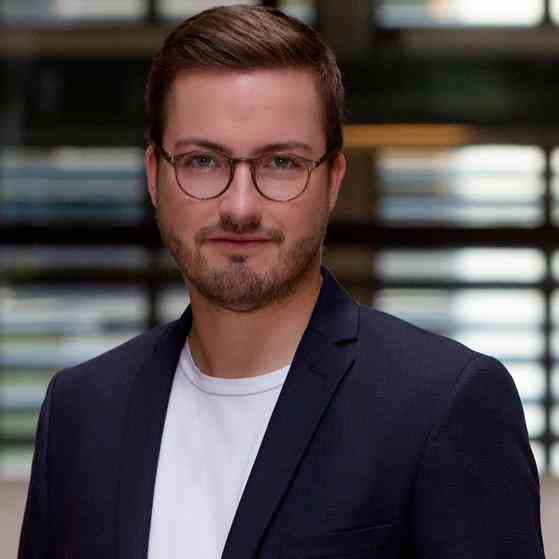Status: 08/18/2022 09:51 a.m
The federal government wants to legalize cannabis. But implementation is likely to be delayed. There are also reasons for this under international law.
Hardly any promise made by the traffic light parties has attracted as much attention as this one: “We are introducing the controlled sale of cannabis to adults for recreational purposes in licensed shops.” That means nothing less than: Weed should be legalized in Germany.
Federal Minister of Justice Marco Buschmann (FDP) continued to raise expectations in the Bundestag in May: “My personal goal is that next year we will be able to sell the first legal joint”. On Twitter he adds: “It is realistically possible to implement the law by spring 2023.” There are now doubts about that.
Forecast? Maybe 2024
Carmen Wegge, the responsible rapporteur for the SPD in the interior committee, criticizes this optimistic prognosis in an interview with the ARD Capital Studio. One should “refrain from saying that we can definitely do it next summer,” says Wegge. Their forecast is that cannabis will probably not become legal until the year after next, i.e. 2024 at the earliest.
The federal drug commissioner, Burkhard Blienert (SPD), wanted to Interview for the podcast “SWR3 Report: Legal intoxication” not even allow for a forecast. “I find it dubious to say now when the first shop will open.” He could understand the impatience. But he also says: “I don’t think we should take lightly how complex the issue really is.” Translated, this means: There are still many problems that need to be solved.
The UN is still in the way
These include problems that play a role above all in Germany: How is the protection of minors regulated? Which regulations apply to road traffic? Should a maximum level for the psychoactive and currently banned substance THC be set? Things that have already been discussed in several hearings and are now to be enshrined in law.
There is currently no draft for this, but it would then have to be coordinated between several ministries. That also takes time. The Federal Ministry of Health is responsible for legalization. However, the Ministry of Agriculture also has a say – in all aspects that revolve around cultivation. The Justice Department and the Department of Commerce are involved, as is the Treasury Department. And in the end, even the State Department could play a role.
An international treaty with the United Nations still stands in the way of a full legalization of cannabis. The 1961 Single Convention on Narcotic Drugs stipulates that drug cultivation and possession must be prosecuted. The contract can be terminated. According to Carmen Wegge (SPD), however, the next exit date is January 1, 2024. There are similar problems with the EU. The Schengen Agreement prohibits the legalization of drug possession.
Different countries, different ideas
“I don’t want to deny that there are certain questions that we haven’t quite figured out yet,” says drug commissioner Blienert. He leaves it open how the problem with the EU could be solved. Because of precisely these problems, Luxembourg has said goodbye to legalization for the time being. There it is temporarily allowed to grow cannabis at home in certain quantities. “This should be a first step to allow legal access in the short term,” says Bob Lessel, who is responsible for the topic at the Luxembourg Ministry of Health.
How have other countries dealt with the problems? Some of them follow a different approach than Germany when it comes to the legal consumption of cannabis. Canada, for example, simply ignores the international treaty – so far without consequences. Legally speaking, the Netherlands has not fully legalized cannabis.
Coffee shops are allowed to sell the drugs there and consumers can smoke weed in public themselves – however, cultivation is forbidden and people are more or less generously looking the other way. In Portugal, cannabis is only decriminalized, which means that violations are no longer punished.
Where does the majority in the Bundesrat come from?
Assuming that the problems were solved in a short time – the Bundestag would then have to decide on the law. “I assume that the Bundestag will start parliamentary deliberations next year,” said Blienert in the SWR3 report: “Legal intoxication”. Important here: Recording does not mean deciding.
However, since the traffic light government has the majority of MPs behind it, a decision should only be a matter of form – even if the timing of a vote, as of now, is open. The whole process is usually a matter of months – unless it’s a high priority, which is unlikely in the case of cannabis.
But then the next hurdle awaits: the Federal Council still has a say, since the interests of the federal states are affected. And there are also critics of legalization in several state governments: the CDU and CSU continue to reject smoking weed. The chairwoman of the Young Group in the Bundestag, the Ulm CDU MP Ronja Kemmer, justifies this in the podcast with the fear that the protection of minors could suffer as a result.
Depending on their size, the states have different numbers of votes in the Bundesrat. Without the Union-governed countries, you would get a maximum of 24 votes. 35 would be necessary for the decision. Means: A law could still fail.
Does it depend on the greens?
SPD woman Wegge relies, among other things, on the Greens, who govern with the CDU in Baden-Württemberg or North Rhine-Westphalia, for example. She read the coalition agreement in North Rhine-Westphalia very carefully, she says. “It says in there that it will be discussed openly”.
Purposeful optimism also for Burkhard Blienert: “At the moment we have an estimated black market in the field of cannabis of six to eight billion euros. Someone has to explain to me that legalization at this point would not make sense.” So the hope: out of reason, the Federal Council would let the law pass. Will that happen? You have to see.
Germany must find its way. It is currently not possible to predict how long this process will take. Carmen Wegge indicates a possible interim solution for the way there: “Maybe next year we won’t be able to smoke a legal joint, but at least a decriminalized one.”


